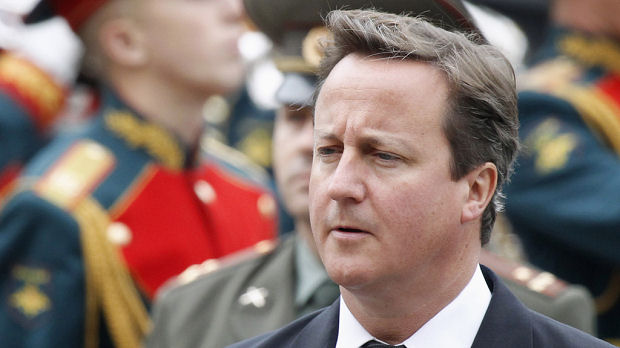Cameron tells Russia: we must work together
Prime Minister David Cameron raises the issue of the Alexander Litvinenko murder case as he meets Russian leaders in Moscow – but says it is time for Britain and Russia to mend relations.
- Chapters
- descriptions off, selected
- subtitles off, selected
- captions settings, opens captions settings dialog
- captions off, selected
This is a modal window.
This is a modal window. This modal can be closed by pressing the Escape key or activating the close button.
David Cameron is meeting President Dmitry Medvedev and Prime Minister Vladimir Putin on his one-day visit.
Relations with Russia have been strained since the Kremlin critic Alexander Litvinenko was poisoned in London in 2006 and Russia failed to extradite the main suspect in his murder.
But Mr Cameron has said he believes the countries can work together despite tensions and help boost their “prosperity and security”.
Mr Cameron is the first UK leader to visit Moscow since Tony Blair in 2005. Speaking at a press conference alongside Dmitry Medvedev, Mr Cameron denied that the British Government was trying to “park” the Litvinenko case to help thaw relations.
But he said while the government still disagreed with Russia, it was possible to move “beyond” the issue.
Earlier, he told a group at Moscow State University that there were still “difficult issues that hamper mutual trust and co-operation”.
“We still disagree with you over the Litvinenko case,” he said.
“Our approach is simple and principled – when a crime is committed, that is a matter for the courts.
“It is their job to examine the evidence impartially and to determine innocence or guilt.”

Mr Cameron said while he felt it was the job of governments to help victims find justice, it was time for both countries to reach beyond the “culture of tit for tat” and mend relations.
But he added: “At the same time, we have a responsibility to recognise the many ways in which we do need each other… and find ways for us to work together to advance our mutual interests.
“The countries that will be successful in the 21st century will not be those that hunker down, pull up the drawbridge and fail to overcome their differences with others.”
Lugavoi’s extradition ‘impossible’
Mr Medvedev reiterated Russia’s position that extraditing prime suspect Andrei Lugovoi – now a politician- was impossible under the country’s constitution.
“We all have to learn to respect our legal frameworks,” he said through an interpreter.
“That will never happen no matter what will be the circumstances.”
Mr Medvedev also took a swipe at the UK justice system, saying he had “questions” about the way the courts operate.
“We have many questions about how the legal questions are being resolved in the UK,” he added.
Russian Foreign Minister Sergei Lavrov has suggested that Britain needed to abandon its “ideological obsessions” with the Litvinenko case.
“More and more people, including politicians, understand that ideological obsessions must give way to pragmatism and the search for balance of interests, both internationally and in bilateral relations of states, in spite of the fact that governments might differ on certain matters,” he wrote in an article for First magazine.
Russia and Britain's 'frozen relations'
At their joint press conference, just finished, President Medvedev said Britain would "never" get its hands on Andrei Lugovoi, the man the UK Crown Prosecution Service wants extradited to face the charge of murdering the Russian dissident Alexander Litvinenko.
"It will never happen… no matter what the circumstances… please remember this," the Russian president said.
David Cameron insisted that he wasn't "parking" the Litvenenko issue that froze UK-Russia relations in 2007 but said the UK should move "beyond" the issue and look at business and commercial interests. You might think that sounded a little contradictory.
Earlier, I spoke to Mr Lugovoi in a Moscow restaurant. He said he thought that Mr Litvinenko may have killed himself in an accident. "What, you think he popped the polonium 210 in his own tea?" I asked.
Read more from Gary Gibbon in Russia on the 'frozen' relationship